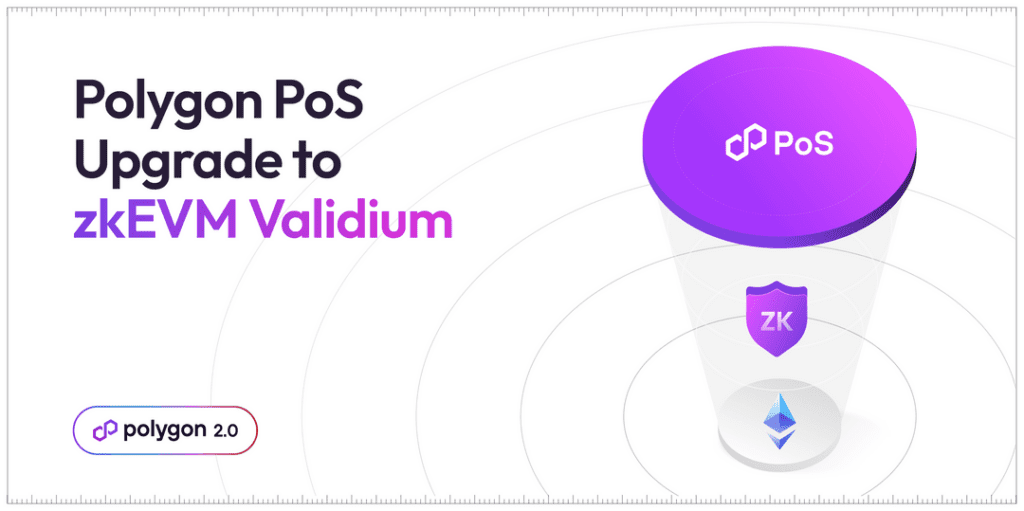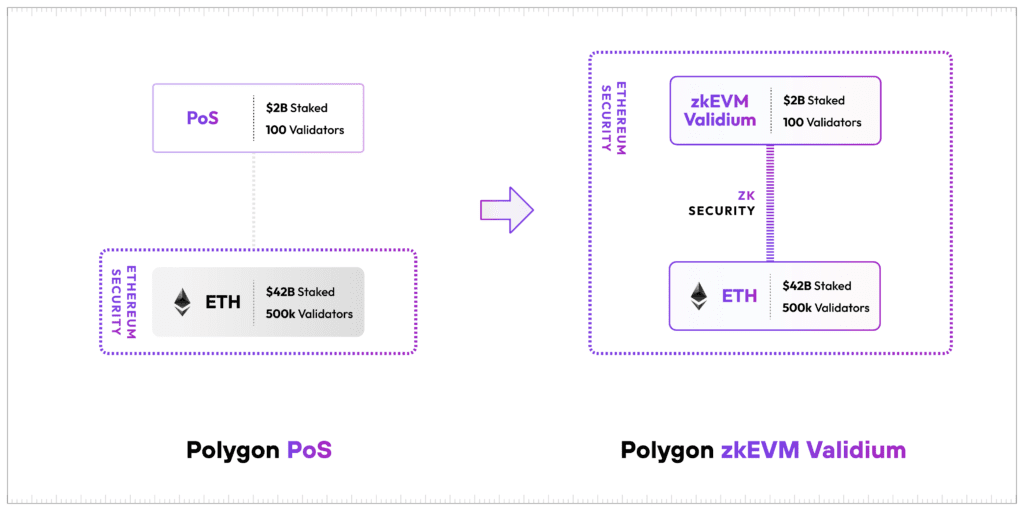Polygon Proposes Decentralized zkEVM Validium Layer 2 Upgrade For PoS: Report
Key Points:
- Polygon’s proposal to upgrade Polygon PoS to a zkEVM validium has the potential to revolutionize blockchain technology, with existing validators running a decentralized sequencer and data availability network.
- The upgrade is expected to go live on mainnet by the end of Q1 2024, and its implementation could dramatically improve the speed, efficiency, and security of Polygon’s blockchain infrastructure.
Polygon has proposed upgrading Polygon PoS to a zkEVM validium, which would be a decentralized ZK Layer 2. Polygon PoS in its current state is secured by its validators, rather than by ZK proofs.

The proposal enables Polygon PoS to become more secure, more performant, and a core part of the Polygon 2.0 ecosystem. With over $2 billion of on-chain assets, tens of thousands of dapps, and an average of 2.5 million transactions per day, the upgrade would be a major achievement. If accepted by the community, it would be the first time that an existing chain of this size and importance adds ZK proofs to become an L2.
Additionally, it allows the entirety of Polygon PoS users, assets, and state to migrate to the Polygon 2.0 ecosystem, which aims to establish Polygon as the Value Layer of the Internet. Polygon 2.0 is powered by ZK technology, with the core belief that every Polygon chain should be a ZK L2. The goal of the upgrade is to enable Polygon PoS to leverage bleeding-edge ZK technology and fit into the Polygon 2.0 vision, ideally without changing anything for users or developers. All applications should continue working, and fees should remain just as low, with the only difference being higher security for users and seamless interoperability with every other chain in the Polygon 2.0 ecosystem.

The upgrade would create a validium, which is the lower-cost, higher-throughput sibling of a rollup. Validiums offer similar security guarantees to rollups, but transaction data is made available off-chain, resulting in significantly lower fees and significantly higher scalability. The only additional cost to run Polygon PoS as a zkEVM validium in the long term would be the cost of generating proofs, which Polygon Labs’s ZK teams have already made incredible progress in reducing. The cost to prove a 10 million gas batch on Polygon zkEVM is just $0.0259, or $0.00005 per transfer.
As a result, Polygon PoS coexists with Polygon zkEVM rollup, with both networks using bleeding-edge zkEVM technology. Polygon zkEVM rollup is a great fit for high-value DeFi applications, while upgraded Polygon PoS (zkEVM validium) would be a great fit for applications that have high transaction volume and require low transaction fees, such as Web3 gaming and social and micro DeFi.
DISCLAIMER: The information on this website is provided as general market commentary and does not constitute investment advice. We encourage you to do your own research before investing.
Join us to keep track of news: https://linktr.ee/coincu
Thana
Coincu News























